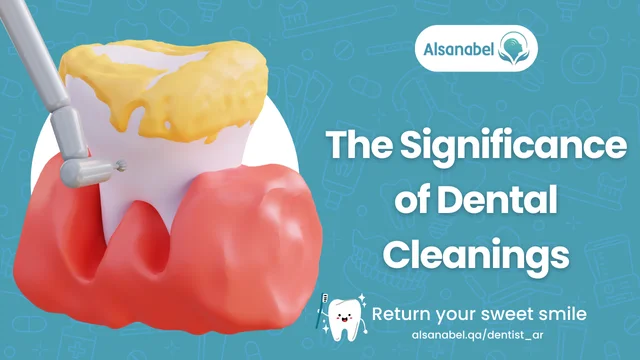
Maintaining a healthy smile requires more than just brushing and flossing at home. While these daily habits are crucial, they often miss areas where plaque and tartar can accumulate. That’s where dental cleaning plays a vital role in safeguarding your oral health. Whether it’s part of your regular care or addressing specific issues, professional cleaning provides a comprehensive solution that benefits both your teeth and gums.
In this article, we will explore the importance of dental cleaning, the detailed steps involved in the procedure, and the wide-ranging benefits it offers. From understanding the difference between routine cleanings and specialized treatments to learning about scaling and polishing, this guide covers everything you need to know.
The Significance of Dental Cleanings
Oral health impacts more than just your smile; it is closely linked to overall well-being. Regular cleaning helps maintain healthy teeth and gums, preventing more severe issues down the line.

Why Is Cleaning Essential?
- Prevention of Dental Problems
- Plaque buildup can lead to cavities and gum disease, which professional cleaning can effectively remove.
- Improved Aesthetics
- Clean teeth enhance your smile, boosting confidence and appearance.
- Better Overall Health
- Gum disease has been linked to systemic conditions such as heart disease and diabetes, highlighting the importance of good oral hygiene.
Understanding the Dental Cleaning Process
A visit to the dentist for cleaning involves more than just brushing your teeth. Each step is designed to target areas that at-home care cannot reach, ensuring a thorough cleanse.
What Happens During a Professional Cleaning?
- Initial Examination
- The dentist or hygienist begins with a detailed inspection of your teeth and gums, checking for signs of decay, inflammation, or other issues.
- Scaling and Polishing
- Using specialized tools, the professional removes plaque and tartar from the surface of your teeth and beneath the gumline.
- Polishing follows, smoothing the enamel and giving your teeth a clean, shiny finish.
- Fluoride Treatment
- A fluoride application may be added to strengthen your teeth and prevent future decay.
- Advice on Oral Care
- The session concludes with personalized recommendations to maintain oral health at home.
Types of Dental Cleaning
Different patients have different needs, and dental cleaning procedures are tailored to address those specific requirements.
Routine Cleaning
- For Preventive Care
- This is the standard cleaning performed during regular check-ups to maintain oral hygiene.
- Frequency
- Dentists typically recommend scheduling routine cleanings every six months.
Deep Cleaning
- When Is It Needed?
- Also known as deep cleaning for teeth, this procedure is necessary for patients with gum disease or heavy plaque buildup.
- Process
- Deep cleaning involves scaling to remove tartar below the gumline and root planing to smooth the roots, allowing gums to reattach to the teeth.
- Benefits
- It halts the progression of gum disease and prevents tooth loss.
The Benefits of Regular Cleanings
The advantages of consistent dental cleanings go beyond aesthetics, contributing significantly to oral and overall health.
Key Benefits
- Prevention of Gum Disease
- Removing plaque and tartar reduces the risk of gingivitis and periodontitis.
- Cavity Prevention
- Professional cleanings target areas missed by brushing, minimizing the risk of decay.
- Fresher Breath
- Removing bacteria and debris eliminates bad breath caused by oral hygiene issues.
- Enhanced Aesthetics
- Cleanings remove surface stains, resulting in a brighter smile.
- Improved General Health
- Regular cleanings reduce the risk of systemic diseases linked to poor oral health.
Why Professional Cleaning Is Superior
At-home care is essential, but it cannot replace the thoroughness of professional dental cleaning.
What Makes Professional Cleaning Different?
- Specialized Tools
- Dentists use advanced equipment to reach areas that brushing and flossing miss.
- Expertise
- A trained professional can identify and address issues before they escalate.
- Comprehensive Care
- Professional cleaning ensures a deeper and more effective cleanse.
Scaling and Polishing: A Closer Look
A crucial part of the cleaning process is scaling and polishing, which removes stubborn plaque and tartar while enhancing the appearance of teeth.
Why Is It Important?
- Plaque Removal
- Scaling eliminates plaque buildup that leads to cavities and gum disease.
- Aesthetic Enhancement
- Polishing removes surface stains, giving your teeth a smooth and shiny finish.
- Prevention of Complications
- By maintaining a clean surface, scaling and polishing prevent issues like gum recession and tooth sensitivity.
Dental Cleaning for Gum Disease
Patients with gum disease require more intensive cleaning procedures at Al Sanabel Dental Center to address underlying problems and restore oral health.
How Deep Cleaning Helps
- Reverses Gum Disease
- Deep cleaning treats early stages of gum disease before it progresses to severe conditions.
- Promotes Healing
- By removing bacteria and smoothing tooth roots, gums can reattach and heal.
- Prevents Tooth Loss
- Addressing gum disease early reduces the risk of tooth mobility and loss.
Teeth Cleaning Benefits for Children
Establishing good oral hygiene habits early is crucial, and regular cleanings are an integral part of a child’s dental care routine.
Why Pediatric Cleanings Matter
- Preventing Decay
- Professional cleanings remove plaque and tartar that contribute to cavities in children.
- Educating on Oral Hygiene
- Children learn proper brushing and flossing techniques during visits.
- Building Positive Habits
- Regular cleanings instill a lifelong commitment to oral health.
Answering Common Questions About Dental Cleaning

1. What is involved in a professional dental cleaning?
A professional cleaning typically includes an initial examination, scaling to remove plaque and tartar, polishing for a smooth finish, and fluoride treatment for added protection.
2. How often should I get my teeth professionally cleaned?
It is recommended to schedule a cleaning every six months. However, individuals with specific conditions like gum disease may require more frequent visits.
3. What are the benefits of regular dental cleanings?
Benefits include preventing cavities and gum disease, fresher breath, improved appearance, and better overall health.
4. Can dental cleanings prevent cavities and gum disease?
Yes, regular cleanings remove plaque and tartar, which are the primary causes of cavities and gum disease.
5. Are there any risks associated with dental cleanings?
Dental cleanings are generally safe. Temporary sensitivity or minor gum irritation may occur, but these effects are short-lived and outweighed by the benefits.
Dental cleaning is an essential part of maintaining oral health, offering numerous benefits that extend beyond just a brighter smile. Whether you’re visiting for routine care or require deep cleaning for teeth, professional treatments provide the thoroughness needed to prevent serious dental issues.
With the added advantages of teeth cleaning benefits and advanced techniques like scaling and polishing, regular cleanings are a vital investment in your overall well-being. Make it a priority to schedule consistent cleanings with a trusted provider to enjoy a lifetime of healthy, confident smiles.
